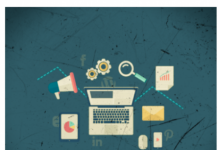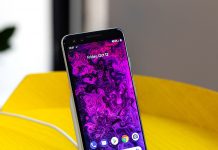For most of my career as a PC analyst, I have followed and chronicled the
evolution of the PC. My first project when I came to Creative Strategies was to work with a
new group formed inside IBM that created the original IBM PC. By the time I was
asked to be involved in some design strategies and retail projects, the IBM PC
had just become a hit, and was in the process of solidifying the role of a PC
in business.
A short time after the IBM PC became successful, clones started hitting the
market. The most successful one of its day was the Compaq computer. I was
privileged to attend the first-ever Compaq analyst event in which all (four) PC
analysts at the time were invited. In the early days of the PC, there really
weren’t any PC analysts per se, and those who had the title had been covering
mini-computers — PCs were added to our research roles.
During the visit, we spent time with Compaq chairman Ben Rosen and Compaq
co-founder Rod Canion to learn about their new PC clone and why they thought
they would be successful. IBM had become a force with their PCs, and I found it
curious that an upstart like Compaq would even challenge them.
In fact, during that visit, I asked Canion why he decided to put up his own
money and go after funding to take on IBM. He told me that when he was at Texas
Instruments, he learned early on that whatever IBM did, it would become a
standard. He saw the success of the IBM PC and understood that it was created
with off-the-shelf parts, and placed what he called a “sure bet” to create a
competitor, knowing full well that IBM’s PC would become the standard for
business computing. Not long after, Dell and others brought out clones, too.
However, the one constant for all of these computers was an operating system
created originally for IBM, known as MS-DOS. Since it was not proprietary, it
was also licensed to Compaq, Dell, Acer and about a couple dozen other PC
vendors in the heyday of the PC. MS-DOS eventually became Windows, and this OS
has been dominant for PCs and laptops for more than 30 years. Of course, Apple
created a computer OS for the Mac, but Apple’s OS is proprietary, and even
though it has done and is still doing very well, PCs running Windows outsell
Macs exponentially.
From where I sit, it really does seem that Android is the Windows of our
day, and Google is in a place to broaden its lead in mobile and IoT, barring
any serious missteps.
It is interesting to note that, for most of Windows’ life, it was a local PC
and laptop OS, but Microsoft had visions of this OS becoming a standard for use
in tablets and smart mobile devices as early as 1990. However, due to a lot of
infighting inside Microsoft and a huge emphasis on productivity, it was never
able to really establish Windows as a dominant OS beyond the PC. This opened
the door for Apple and Google to create new operating systems designed just for
mobile computers and IoT.
While Apple’s iOS is a huge success in its own right, like OS X, it is
proprietary and used only on Apple products. On the other hand, Android has a
lot of the original characteristics of Windows in that it is a licensable OS
that can be used by any PC, tablet, smartphone and IoT vendor in the world.
Indeed, if you look at the number of mobile devices on the market today running
Android, it makes up about 75 percent of all products shipped.
At Googles recent I/O
developers’ conference, Google’s leadership clearly stated that they want
Android to be the dominant OS for connected devices and Internet of Things.
Like Windows, Android is hardware-agnostic and can easily be applied to any
mobile or IoT device. Even more important is that Android serves as Google’s
OS/UI to its overall cloud vision, and it is building most of its worldwide
ecosystem of products and services channeled through Android.
Almost from the beginning, Bill Gates and Microsoft wanted their OS, and
especially Windows, to be dominant on devices around the world. I still see
that as their goal, but due to various choices and infighting, they are far
behind Google and Apple in this quest — I don’t see that Windows outside of the
PC could ever become a dominant device OS worldwide.
Apple, with its proprietary approach, has made major strides in its quest to
dominate the device market, and with the iPhone, iPad, HealthKit, HomeKit,
CarPlay, Apple Watch and Apple TV, it has emerged as a serious powerhouse in
this space. However, while in the past, Apple’s main competitor was Microsoft
and Windows, this time it is Google and Android, and Android has become the
Windows of our generation.
The big difference between Microsoft and Google is that Microsoft still has
to protect its legacy devices as well as try and move everything to its “One
Microsoft” strategy. That is not easy to do. When it comes to mobile
devices, Microsoft’s Windows mobile phones are a very distant third in the
overall market of smartphones. As for IoT, iOS and Android clearly have an edge
and momentum over Microsoft. Market projections from most research houses see
Android basically dominating the market for mobile and IoT because it is
device-agnostic and is a free license for anyone that wants it.
From where I sit, it really does seem that Android is the Windows of our
day, and Google is in a place to broaden its lead in mobile and IoT, barring
any serious missteps. Apple will be a worthy competitor, and I don’t expect
Microsoft to rest on its laurels and let Google dominate this space without a
fight. However, Android’s lead in these two markets is quite huge and, if
Google keeps moving in this direction and keeps its customers happy, I suspect
that Android, at least from a numbers viewpoint, will continue to be the
dominant mobile and IoT system for many years to come.
Tim Bajarin is the president of Creative
Strategies Inc. He is recognized as one of the leading industry
consultants, analysts and futurists covering the field of personal computers
and consumer technology. Bajarin has been with Creative Strategies since 1981,
and has served as a consultant to most of the leading hardware and software
vendors in the industry including IBM, Apple, Xerox, Compaq, Dell, AT&T,
Microsoft, Polaroid, Lotus, Epson, Toshiba and numerous others. Reach him @Bajarin.
SOURCE : recode.net





